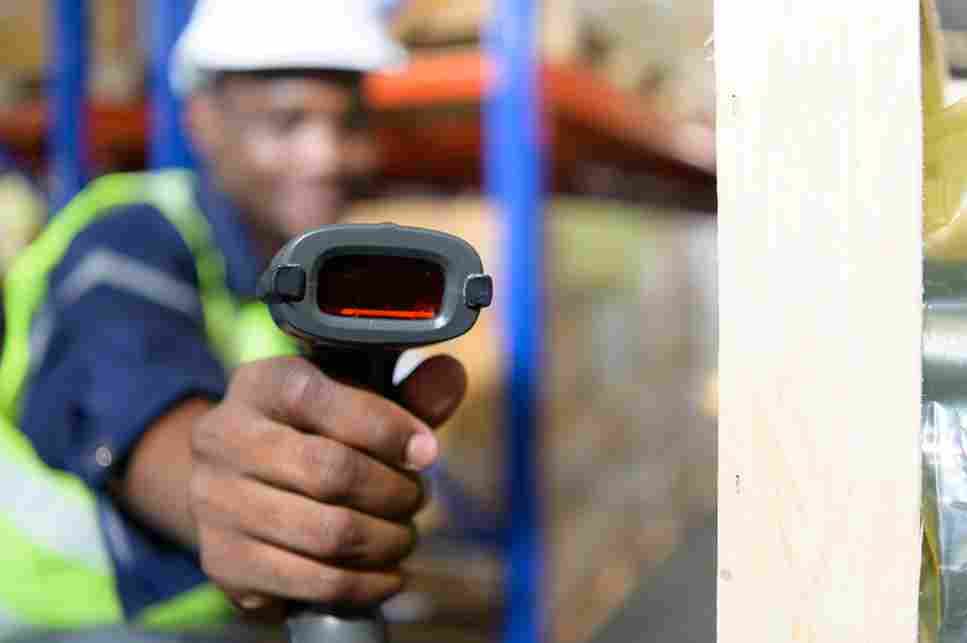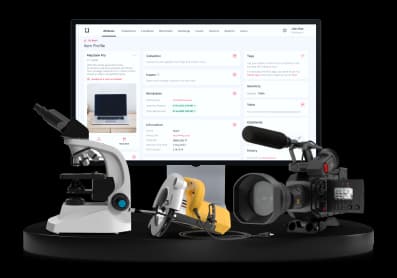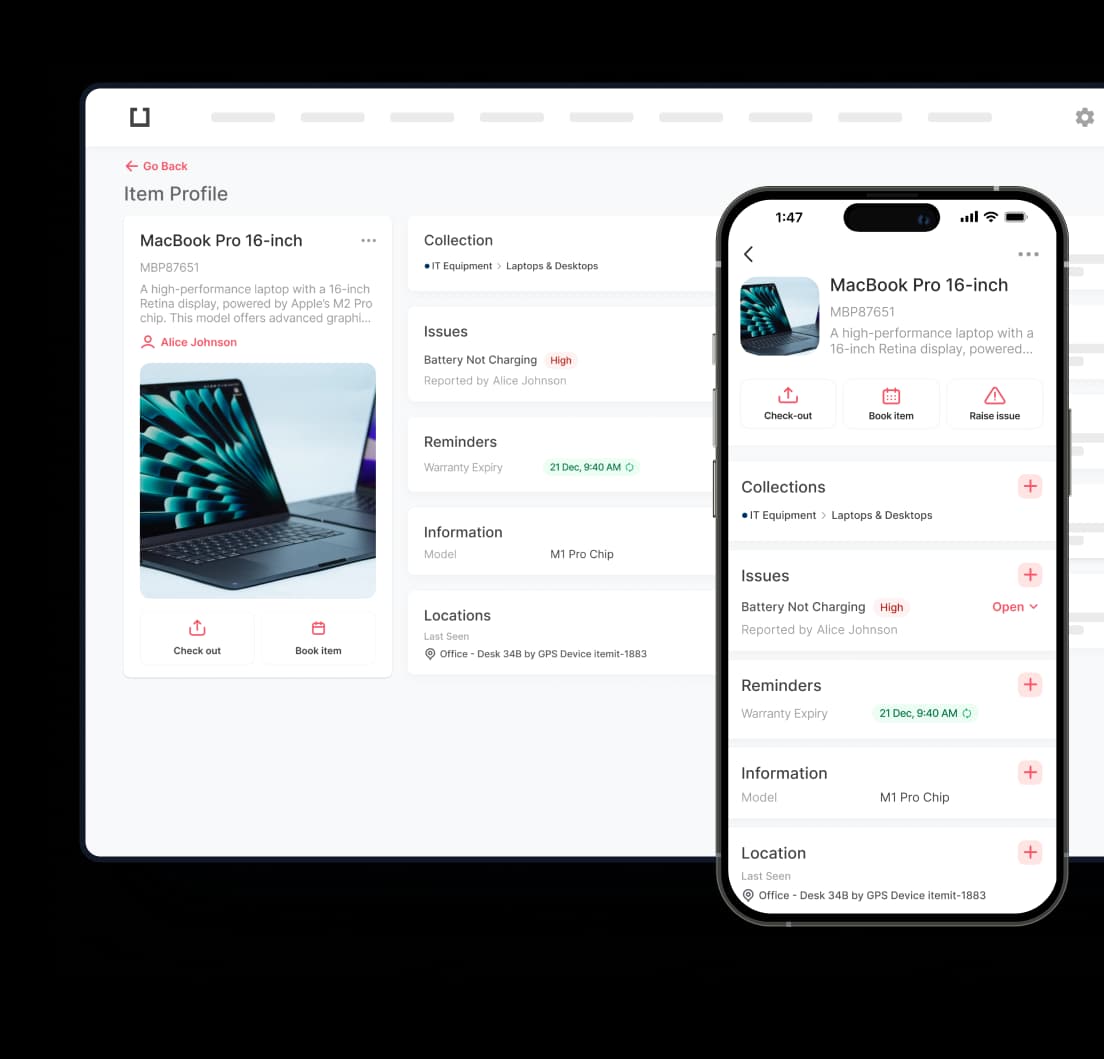Stay updated on the latest trends and innovations in modern construction, building methods, and advanced technologies transforming the industry today and beyond.
Small businesses face unique inventory challenges. Assets scattered across multiple locations, diverse equipment types, and stretched staff resources create tracking nightmares. Many operations still rely on paper logs and spreadsheets, despite their obvious flaws.
These outdated methods create cascading problems. Lost equipment, misplaced inventory, and scheduling conflicts drain valuable resources. Smart business owners recognize these inefficiencies and search for better solutions.
RFID for small business applications provide a tested alternative. These systems eliminate guesswork while delivering exceptional visibility into asset locations and usage patterns. The technology produces measurable improvements in operational efficiency and cost control.

Eliminating Errors Through Smart Automation
Manual processes always introduce mistakes. Staff members, no matter how experienced, occasionally miscount items or input wrong information. These small errors build up, creating major operational headaches.
What is RFID Asset Tracking systems powered by sophisticated software eliminate most human intervention points. Automated scanning captures data perfectly every time, slashing error rates by up to 99%. This reliability transforms inventory management from a daily struggle into a strategic advantage.
Teams love the reduced paperwork burden. Rather than spending hours checking inventory counts, employees can focus on activities that actually grow the business.
Real-Time Information Access Changes Everything
Modern business decisions need current information. Traditional tracking methods provide stale snapshots that might not reflect actual conditions. RFID systems for small business environments deliver instant updates whenever assets move or change status.
Storage area removals automatically trigger record updates. Managers get accurate inventory counts without manual checks. This real-time visibility enables smarter purchasing decisions and prevents stockouts that could shut down operations.
Data accessibility transforms planning processes completely. Teams can study usage patterns, spot peak demand periods, and optimize resource allocation based on actual behavior rather than guesswork.
Productivity Gains Through Intelligent Technology
Streamlined Daily Operations
Asset tracking software for small business applications dramatically cut time spent hunting for equipment. Staff no longer waste precious hours searching through storage areas or calling colleagues about item locations.
Automated processes handle routine tasks that previously consumed major resources. Inventory updates, location tracking, and usage monitoring happen seamlessly without manual work. This efficiency lets teams focus on strategic initiatives rather than paperwork.
The total time savings often shock business owners. Activities that once required hours can be finished in minutes, freeing resources for growth-oriented projects.
Boosted Team Performance
Productive teams drive business success. RFID inventory solutions for small businesses create conditions where employees can work at maximum efficiency. Equipment location queries get instant responses, eliminating delays that disrupt workflow.
Automated tracking removes uncertainty from daily operations. Team members confidently access needed resources without verification delays or availability worries. This predictability improves project planning and execution quality.
Cross-training becomes more effective when asset information is immediately available. New employees quickly learn equipment locations and procedures, cutting onboarding time and improving overall team capability.

Accountability and Financial Control
Better Asset Responsibility
RFID for small business tracking systems create detailed audit trails. Every asset interaction generates timestamped records showing user identity, location changes, and usage duration. This visibility encourages responsible behavior and careful equipment handling.
Teams understand that asset movements are monitored and recorded. This awareness typically results in improved care and reduced loss rates. Equipment damage drops when users know their actions are tracked and accountable.
Supervisors can spot training needs based on usage patterns. Employees who frequently misplace items or cause damage can receive targeted support to improve their performance.
Direct Financial Impact
Lost or damaged assets represent immediate financial losses. Asset tracking for small business operations significantly reduce these costs through improved visibility and accountability. Equipment rarely vanishes when its location is continuously monitored.
Replacement costs drop substantially when assets are properly tracked and maintained. The savings often justify the initial technology investment within the first year of implementation.
Insurance premiums may also decrease when businesses demonstrate effective asset management practices. Carriers recognize that well-tracked equipment faces lower theft and loss risks.
Location Tracking Advantages
Precise Asset Visibility
RFID for small business applications excel at location tracking. Tagged assets can be found instantly, whether they're in storage, deployed in the field, or undergoing maintenance. This precision eliminates the uncertainty that plagues manual tracking systems.
Mobile teams particularly benefit from location tracking capabilities. Field workers can verify equipment availability before traveling to job sites, reducing wasted trips and improving customer service.
Multi-location businesses gain centralized visibility across all facilities. Managers can redistribute resources based on actual demand rather than assumptions about asset availability.
Movement Monitoring Insights
Asset movement patterns reveal valuable insights about operational efficiency. IT management software for small business environments often includes analytics that identify underutilized resources and optimization opportunities.
Tracking data helps optimize asset allocation between departments or locations. Resources can be repositioned to match demand patterns, improving overall utilization rates.
Unauthorized movements become immediately apparent. Security improvements naturally result from this enhanced visibility and monitoring capability.
Implementation Planning for Small Businesses
Technology Selection Process
Asset management software for small business solutions vary dramatically in features and complexity. Smaller operations typically benefit from systems that balance comprehensive functionality with ease of use.
When evaluating RFID solutions, consider these critical features:
- Real-time tracking capabilities that provide instant location updates
- Mobile accessibility for field team operations and remote asset management
- Integration options with existing business software platforms
- Scalable architecture that accommodates business growth without major reinvestment
- User-friendly interfaces that minimize training requirements
- Robust reporting tools for data analysis and decision-making support
- Cloud-based deployment to eliminate server maintenance responsibilities
Cloud-based platforms often provide the best value for growing businesses. These solutions eliminate server maintenance requirements while providing scalable capacity that grows with business needs.
Mobile compatibility ensures that field teams can access asset information regardless of location. This flexibility supports diverse operational models and remote work arrangements.
Integration Opportunities
RFID systems for small business environments work best when integrated with existing software platforms. Connections to accounting systems enable automatic depreciation tracking and cost allocation.
Project management software integration provides comprehensive resource planning capabilities. Teams can reserve equipment for specific jobs while maintaining visibility into availability schedules.
Customer relationship management connections support better service delivery. Service teams can confirm equipment availability before making customer commitments.
Staff Training and System Adoption
User Education Programs
Successful RFID for small business implementations require comprehensive staff training. Users must understand both the technology capabilities and proper procedures for asset handling.
Training programs should address different user roles and responsibilities. Warehouse staff need different knowledge than field technicians or administrative personnel. Benefits of Using RFID technology become clear when users understand their specific applications.
Ongoing support ensures that users can effectively utilize system features. Regular refresher sessions help maintain proficiency and introduce new capabilities.
Change Management Strategies
Technology adoption often faces resistance from employees comfortable with existing processes. Asset tracking software for small business implementations succeed when users understand the personal benefits they'll experience.
Demonstrating how the system simplifies daily tasks helps overcome initial reluctance. Employees appreciate tools that make their jobs easier and more efficient.
Feedback mechanisms allow continuous improvement of procedures and training materials. User suggestions often identify optimization opportunities that enhance system effectiveness.

Return on Investment Analysis
Cost Reduction Metrics
RFID inventory solutions for small businesses typically generate measurable cost savings within 12-18 months. Reduced loss rates, improved asset utilization, and decreased administrative costs contribute to positive returns.
The primary cost savings categories include:
- Labor reduction: Automated tracking eliminates 60-80% of manual inventory tasks
- Asset loss prevention: Proper tracking reduces equipment loss by up to 90%
- Maintenance optimization: Predictive scheduling extends asset lifecycles by 25-40%
- Administrative efficiency: Reduced paperwork and data entry saves 15-20 hours weekly
- Insurance premium reductions: Demonstrated asset control may lower coverage costs by 10-15%
Labor cost reductions often represent the largest savings category. Automated tracking eliminates many manual processes that previously required significant staff time.
Equipment replacement costs decrease when assets are properly tracked and maintained. Extended asset lifecycles improve overall financial performance while reducing environmental impact through better resource utilization.
Operational Efficiency Gains
Asset tracking for small business applications improve operational efficiency through better resource allocation and reduced downtime. Teams can accomplish more with existing resources.
Customer service improvements result from better equipment availability and faster response times. Satisfied customers provide repeat business and referrals that drive growth.
Competitive advantages emerge when businesses can respond more quickly to opportunities. Efficient asset management supports aggressive growth strategies.
Future-Proofing Your Business Strategy
Scalability Planning
RFID for small business systems should accommodate future growth without major reinvestment. Scalable platforms support additional users, locations, and asset types as businesses expand.
Cloud-based solutions typically offer the best scalability options. These platforms can handle increased transaction volumes and user counts without performance degradation.
Integration capabilities become more important as businesses grow. Systems that connect with additional software platforms support evolving operational needs.
Technology Evolution Trends
Asset management software for small business applications continue evolving with new features and capabilities. Regular updates ensure that systems remain current with industry best practices.
Mobile technology improvements expand field accessibility and functionality. Teams can perform more tasks remotely, supporting flexible work arrangements.
Analytics capabilities become more sophisticated over time. Advanced reporting helps identify optimization opportunities and supports strategic planning.

Making the Right Investment Decision
RFID systems for small business environments represent strategic investments in operational efficiency. The technology delivers measurable improvements in productivity, cost control, and asset utilization.
Businesses that delay implementation often find themselves at competitive disadvantages. Manual tracking methods cannot match the accuracy and efficiency of automated systems.
The implementation process typically requires 4-6 weeks for complete deployment. This relatively short timeline means businesses can realize benefits quickly after making the investment decision.
Professional support ensures successful implementation and user adoption. RFID Tracking Tips and expert guidance help businesses avoid common pitfalls and maximize system effectiveness.
Getting Started with Your RFID Implementation
RFID for small business operations transforms asset management from a necessary burden into a competitive advantage. The technology provides the visibility and control needed to optimize operations and drive growth.
Ready to transform your operations? Getting started with RFID is easier than most business owners expect. The right system can be operational within weeks, delivering immediate improvements in efficiency and cost control.
Success depends on choosing the right solution for your specific needs. Consider your current challenges, growth plans, and existing technology infrastructure when making your selection.
RFID inventory solutions for small businesses offer proven returns on investment through reduced losses, improved efficiency, and enhanced accountability. The technology has matured to the point where implementation risks are minimal while benefits are substantial.
Contact team@itemit.com to discuss how RFID inventory solutions for small businesses can transform your operations and improve your bottom line. Our experts can help you select the right system for your specific needs and ensure successful implementation.


Modern Methods of Building Construction. Trends and Innovations to Watch

How to Create an Effective Construction Management Plan for Your Project
Create an effective construction management plan that improves safety, minimises delays and keeps your project organised and on track from planning to completion.

A Complete Guide to Construction Cost Management and Planning
Effective construction cost management and planning improve profitability, enhance financial stability, and strengthen resource allocation across every project.






